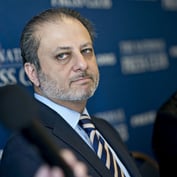NEW YORK (HedgeWorld.com)–Excessive leverage by hedge funds could threaten the world financial system ? la the Long-Term Capital Management affair, but more regulation is not necessarily the right approach, said International Monetary Fund official Hung Q. Tran.
He was speaking last week at a panel organized by 100 Women in Hedge Funds and hosted by Reuters. What interests the IMF is the effect of hedge fund activities on global financial stability. From this perspective, hedge funds play a very constructive role overall, adding liquidity and risk capital and improving the efficiency of markets, he said.
He added that hedge funds’ ability to generate returns with low correlation to major indexes improves diversification for many investors and hence complements financial markets.
But at the same time, hedge funds could exacerbate liquidity risk and increase credit risk for financial institutions, Mr. Tran said. However, he and his colleagues at IMF’s International Capital Markets department, where he is director, consider certain developments since the 1998 LTCM debacle as more promising in containing this hazard than increased regulation would be.
Fiduciary Obligations








 January 24, 2005 at 07:00 PM
January 24, 2005 at 07:00 PM










